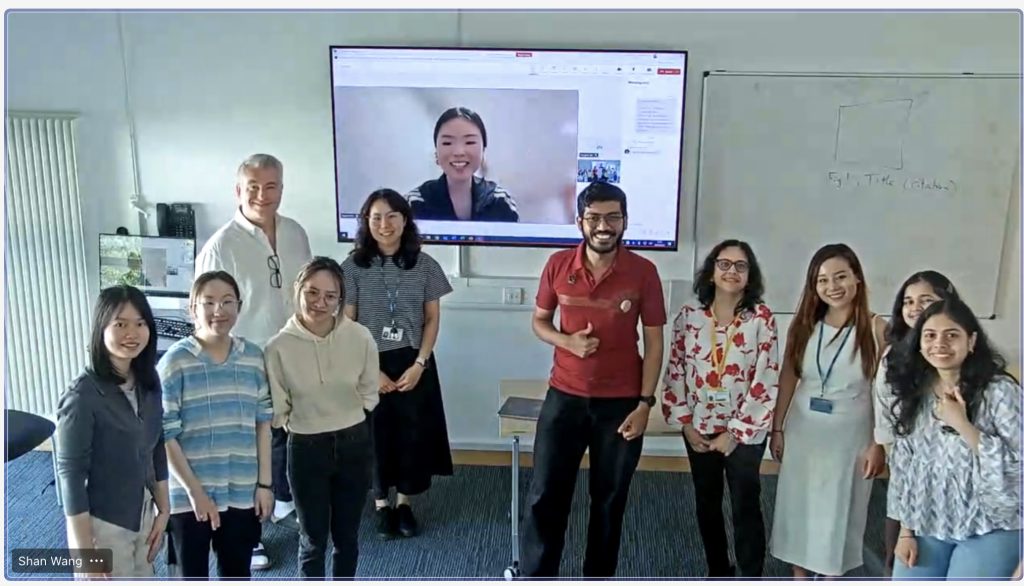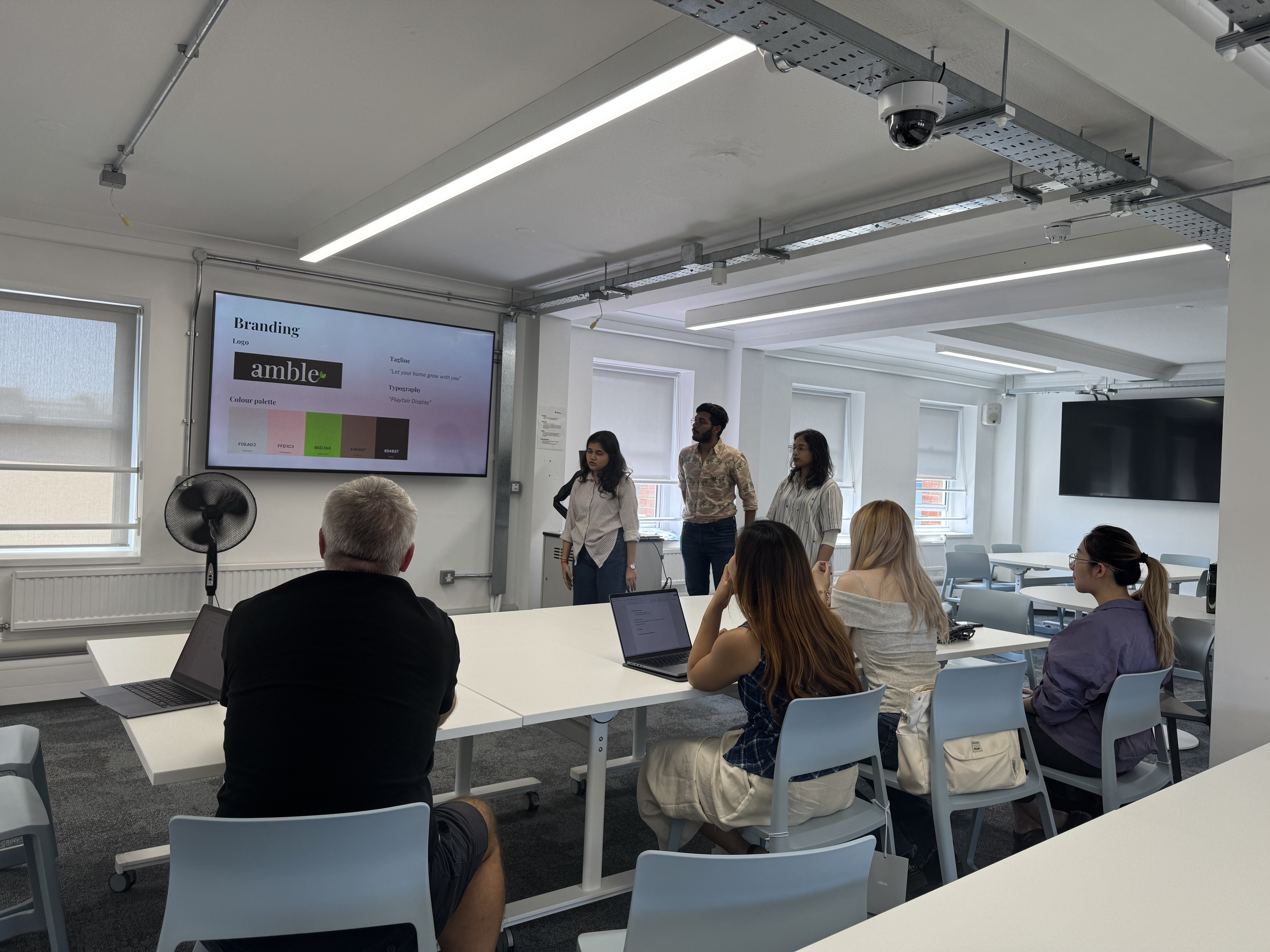March–July 2025
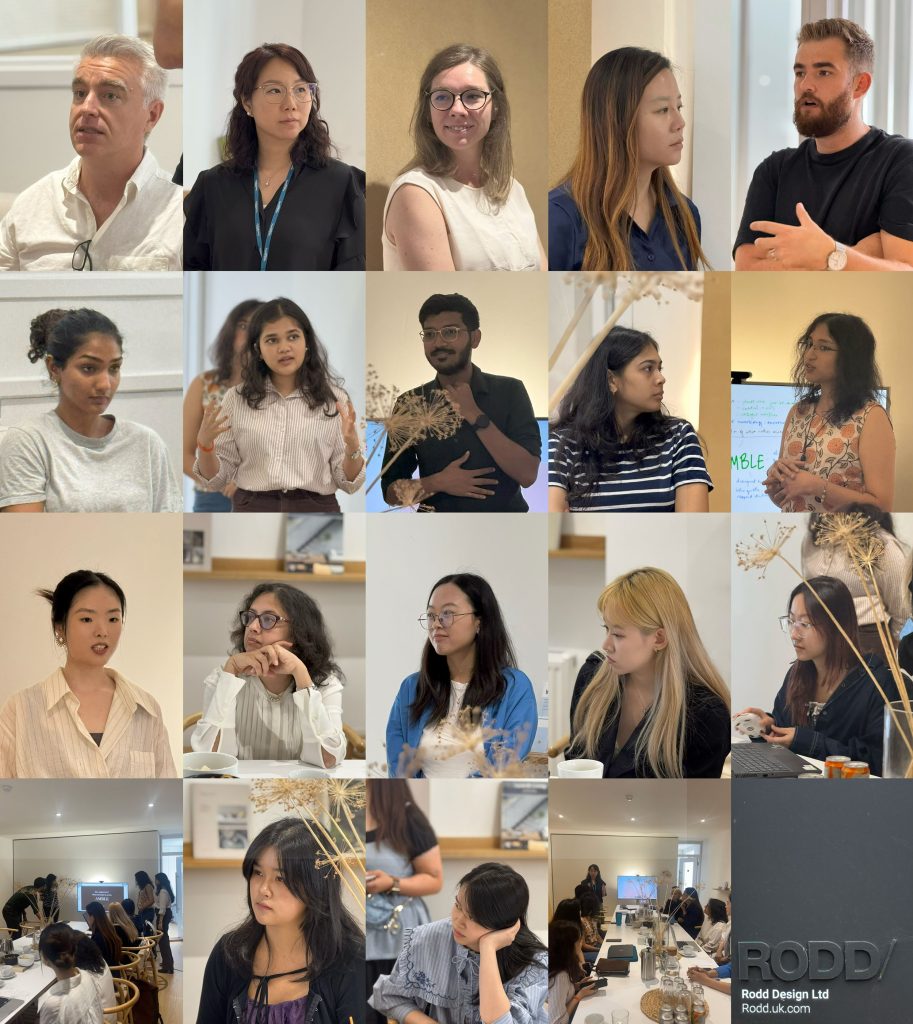
Ageing 2065 was a four-month extracurricular live project co-led by Dr. Shan Wang (WSA) and Ben Davies (Rodd Design), bringing together postgraduate design students and industry experts to explore future scenarios for ageing well in the year 2065. Against the backdrop of shifting socio-economic and demographic landscapes, students were invited to speculate on how we might live, work, and age in radically different futures. The project challenged participants to integrate emerging technologies, inclusive design practices, and ethical considerations into their concepts to address the needs of future older adults.
The brief encouraged students to critically investigate global and cultural perspectives on ageing, the emotional and social dimensions of later life, and the role of technologies such as AI and XR. A central focus was placed on human dignity, autonomy, and inclusive innovation. Working in teams, students developed speculative yet actionable concepts supported by user insight and design research.
Aims
· To create inclusive, design-led, user-centred concepts for ageing well in 2065.
· To examine the ethical and societal impacts of applying technology to care, autonomy, and wellbeing.
· To strengthen student–industry collaboration through a structured, research-informed design process.
How the Project Worked
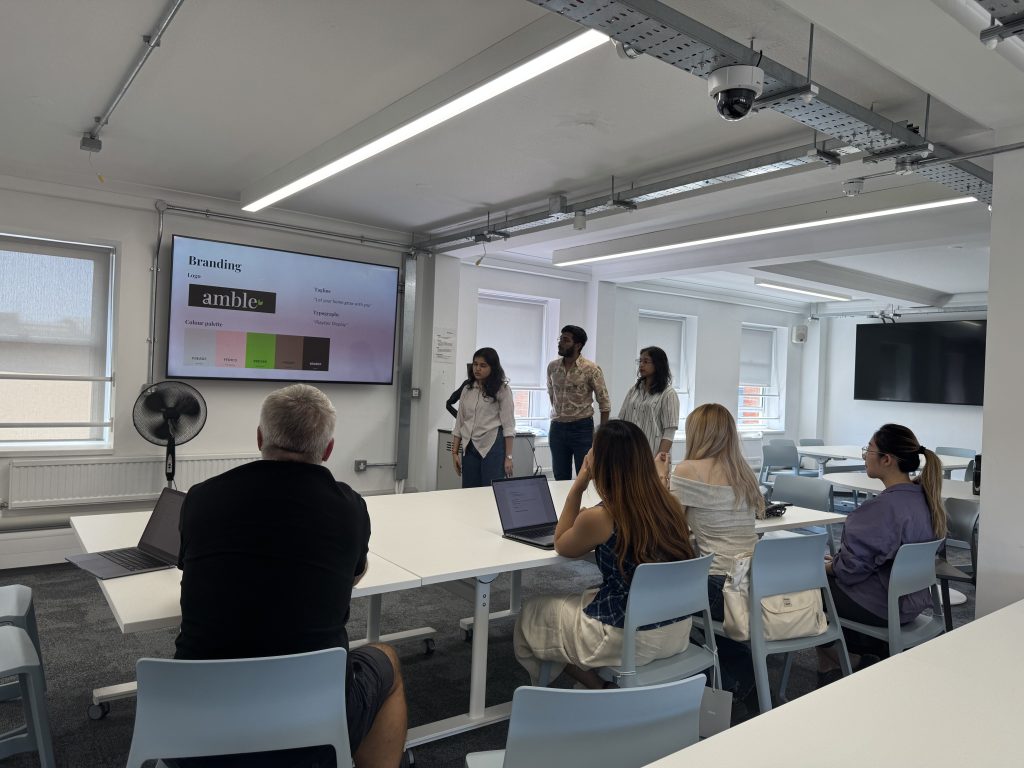
This non-credit-bearing extracurricular initiative was open to students across WSA’s undergraduate, postgraduate, and PhD programmes. A total of three interdisciplinary teams participated, comprising 12 students from Design Management, Fashion Management, Global Brand Management, and PhD programmes. Over the course of four months, participants engaged in six in-person design critique sessions with mentors from both WSA and Rodd Design. The project culminated in a final presentation at the Rodd Design studio on 25 July 2025. Preparations are now underway for the next showcase, which will take place at the London Design Festival in September 2025.
Collaboration with External Agencies
This project offered students a rare opportunity to co-design with industry practitioners outside the curriculum. Working with Rodd Design not only elevated the professional relevance of the students’ work but also fostered mutual learning around design futures, inclusive innovation, and speculative prototyping. The collaboration
exemplified how academic and industry partners can co-create meaningful, design-led research outcomes.
Projects Developed
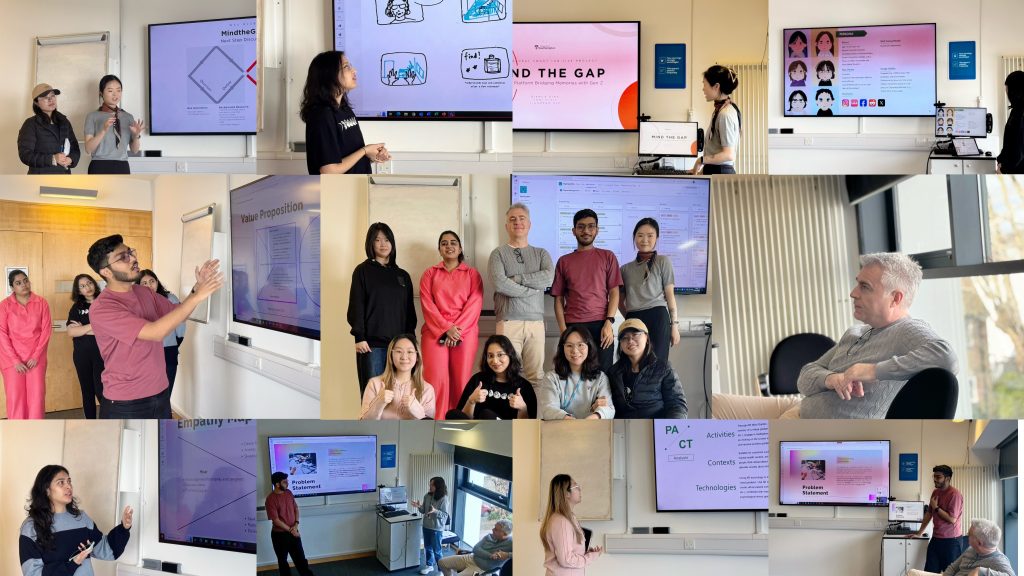
Project 1 – Amble A decentralised, bioengineered plant system that integrates ambient intelligence into the home environment, offering unobtrusive support for older adults and neurodivergent users. Amble enhances daily life through multisensory interaction without replacing human care.
Project 2 – Nourishing Futures A speculative AI–XR platform that supports personalised eating experiences for individuals living with dementia. The concept focuses on enhancing dignity, choice, and emotional wellbeing through immersive, adaptive technologies.
Project 3 – Dreamy cUre Immersive Experience Developed in cross-institutional collaboration with the Communication University of China (CUC), this project envisioned an MR-based therapeutic experience using endangered plants to relieve future mental stress and promote wellbeing through virtual nature immersion. Dr. Angelina Pan, a co-lead on the project, offered invaluable insights throughout the development process.
Student Involvement
Across all three projects, students took on diverse roles ranging from UX design and inclusive design strategy to digital engagement and visual communication. They worked in interdisciplinary teams, gaining experience in real-world project delivery, client communication, and speculative design practice.
